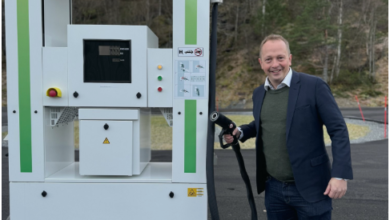Volvo Cars to be the first automaker to explore green steel with SSAB
SSAB is building a complete fossil-free value chain all the way down to customers using hydrogen as a key tool to decarbonise its steel production process.

Ssab and Volvo Cars will join hands for developing fossil-free steel for application in the automotive industry, H2 Bulletin reports.
The collaboration will make Volvo Cars the first carmaker using SSAB fossil-free steel produced by using hydrogen-reduced iron at the Hybrit pilot plant in Luleå, Sweden. The steel will be used for testing purposes and may be used in a concept car.
Martin Lindqvist, CEO at SSAB, said, “Our breakthrough technology has virtually no carbon footprint and will help strengthen our customer´s competitiveness. Together with Volvo Cars, we aim to develop fossil-free steel products for cars of the future.”
Håkan Samuelsson, CEO at Volvo Cars. “The collaboration with SSAB on fossil-free steel development could give significant emission reductions in our supply chain.”
It is assessed that the global steel industry accounts for around 7% of global direct carbon emissions due to its dependence on coking coal in the blast furnace route. SSAB aims to reduce Sweden’s emission by 10% and those in Finland by 7%, through Hybrit technology, using green hydrogen instead of coking coal.
For Volvo Cars, the CO2 emissions linked to steel and iron production for its cars is about 35% in internal combustion engine car and 20% in a fully electric car of the total emissions from all the material and production of parts used in the car. SSAB plans to start supplying fossil-free steel at a commercial scale in 2026, whereas Volvo Cars aim to be the first carmaker to use fossil-free steel for its actual car production.
The Hybrit initiative started by SSAB, LKAB and Vattenfall aiming to replace coking coal in steelmaking with clean electricity and hydrogen.
